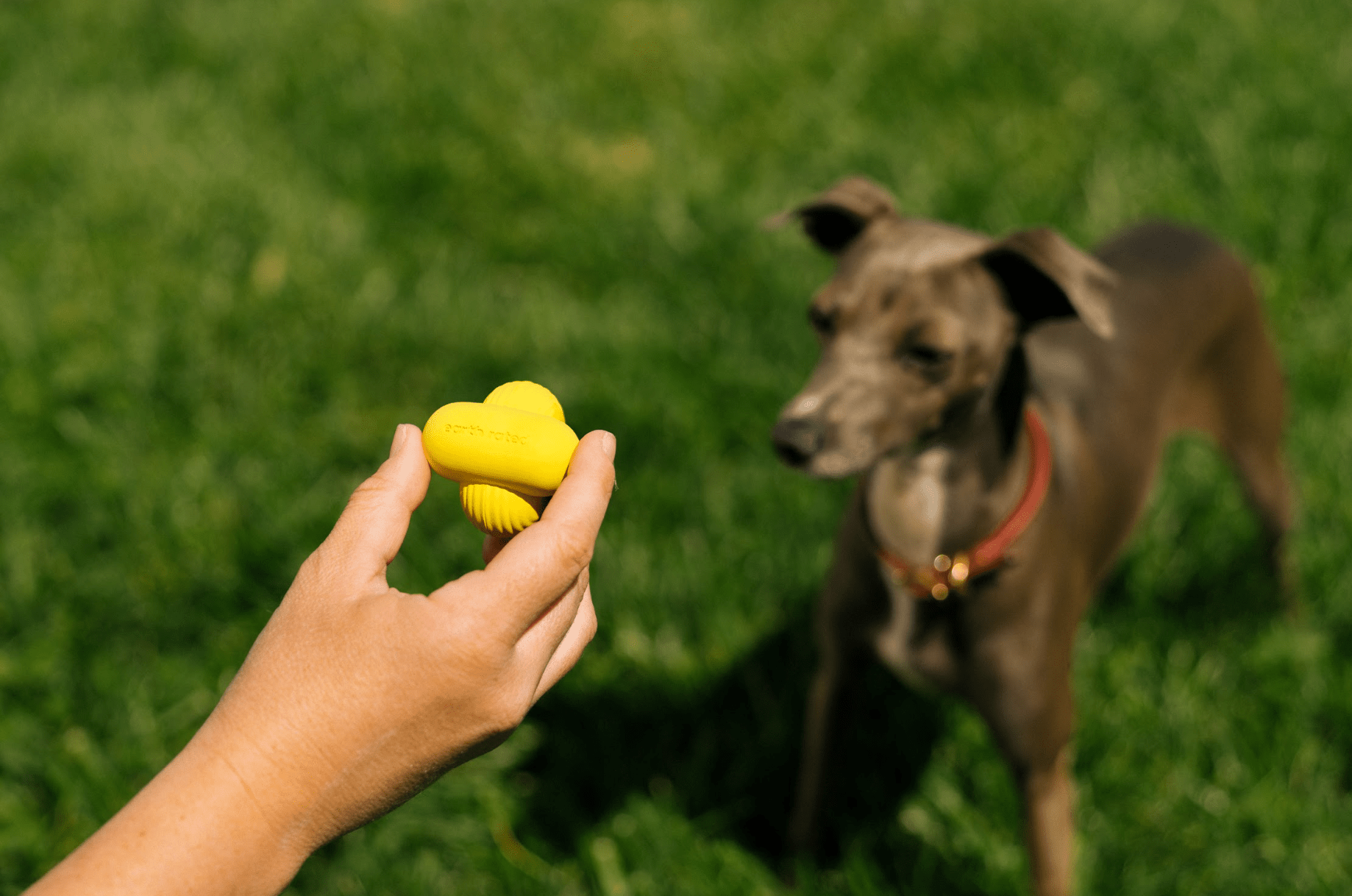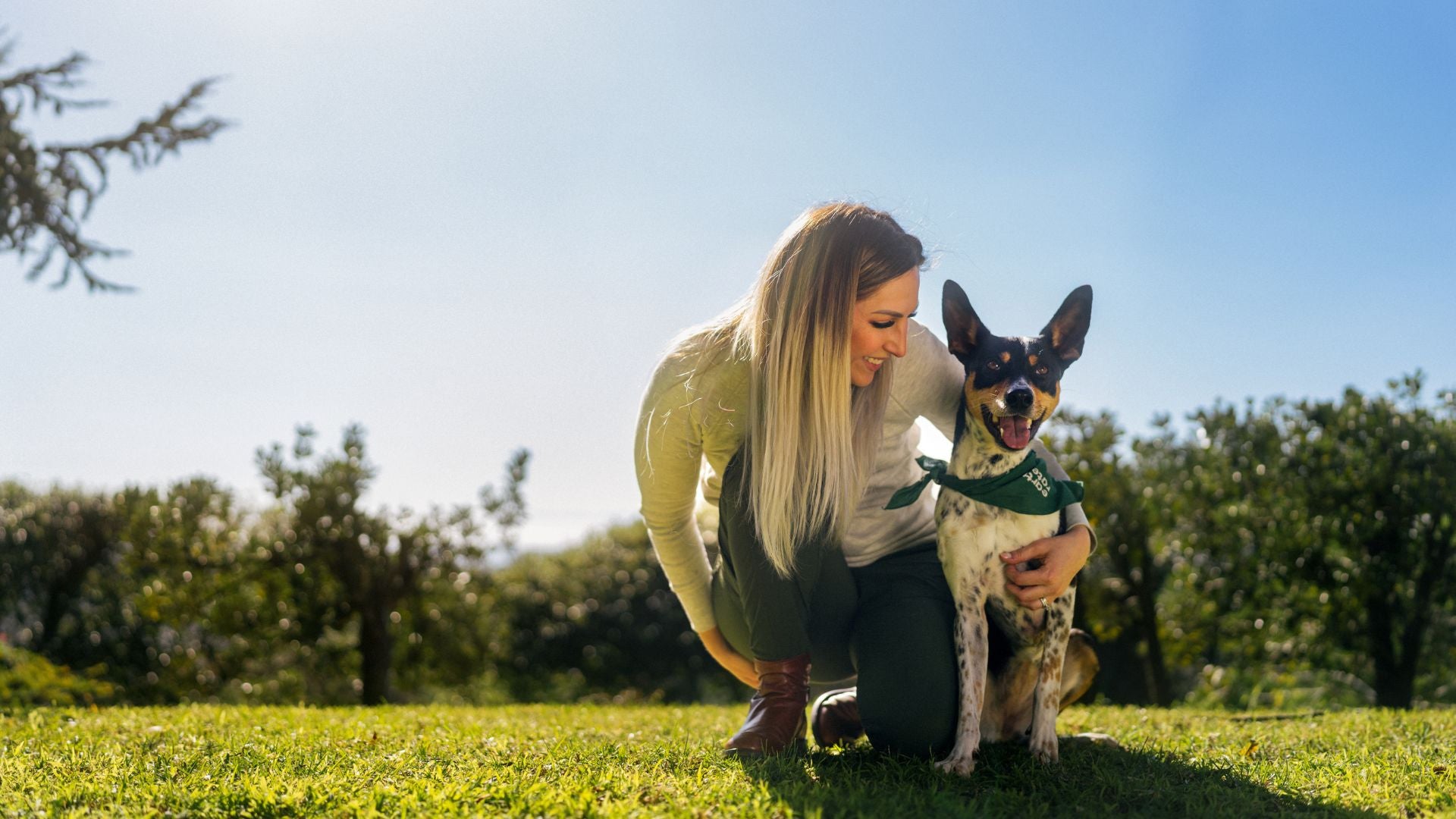Let’s face it, studying your dog’s poop 🧐 probably isn’t what you had in mind when you first adopted your little cutie pie. But, the doggy duty can hold the key to your pup’s health - if you know what to look for!
Believe it or not, dog poop is a good indicator of your pup’s digestive health. According to Isa Pellerin, a certified animal health technician, “Chronic loose stools or constipation can indicate an issue and shouldn't be ignored!”
That’s why it’s important to have an unhealthy dog poop chart handy to note any unsettling changes! We’ll unveil the secrets hidden in your dog’s poop and help you understand what’s normal (and when to call your vet).

Understanding Normal Dog Poop
Before we can identify unhealthy dog poop, we first need to establish a healthy baseline. Let’s dive into what normal dog poop is.
Characteristics of Healthy Dog Poop
Remembering what your dog’s poop should look like is easy. All you need to do is remember the 4 C’s:
Frequency and Odor
Every dog has their own potty frequency and routine, but generally, once or twice a day is a good rule of thumb. Your dog should be regular enough for you to predict when they go. That said, some variation outside of this norm is also nothing to worry about.
As long as your dog is pooping regularly and the stool looks healthy, the exact timing isn’t necessarily as important! Like us, your dog’s schedule may change if there is a routine change or stressful event, too.
The worrisome signs you should be concerned with are those far outside the normal range. Your dog suddenly goes to the bathroom five times a day, or they haven't gone in two days? This might be a sign of something strange going on in their tummy. Jot down any other symptoms you notice in case you need to consult with your vet.
Regular poop shouldn’t knock you over with its stench. It’ll have a slight odor, yes, but shouldn’t leave you gagging! Something may be wrong if your pup suddenly has very smelly poops!
Understanding Unhealthy Dog Poop
Now that we know what healthy droppings look like, let’s sniff out what might be a cause for concern. Some occasional changes are normal. All dogs will deviate outside of their normal range from time to time. But if these red flags keep flying, it’s time to consult your vet! 🚩
Color
Anything that isn’t chocolate brown should raise an eyebrow. Here’s what specific colors may mean:
If your dog has black or tarry stool, contact your vet immediately. Blood can be exceptionally dangerous. Other colors can be monitored for a few days, but if the problem persists, you should contact your vet.
Consistency
Anything that strays from Play-Doh consistency is a potential red flag. Loose, watery stools are a sign of irritation in your pup's digestive system, while hard, dry stool can be due to dehydration or a lack of fiber.
Content
Surprises in your dog’s poop is never a good sign! Isa admits that the most overlooked sign of unhealthy dog poop is actually mucus, which is a sign of irritation. She describes it as “like yellow jelly usually outside the stool, but it can also be mixed in.”
Coating
A greasy film or excessive slime is a sign that something’s amiss in your pup’s digestion. A greasy film can indicate a problem with fat digestion and pancreas issues. Excessive slime can signify intestinal inflammation.
5 Causes of Unhealthy Dog Poop
If your dog’s poop is leaving you scratching your head, here are the usual suspects behind unhealthy dog poop.
-
Dietary Changes
What goes in must come out, so if your dog’s bathroom routine changes, you should check their diet first. Table scraps can wreak havoc on your dog’s digestive system. Your dog isn’t used to these fattier foods, and they can cause potty problems.
Switching your dog’s food suddenly can also upset their tummy, especially if the change is dramatic (like switching brands and/or flavor). Dogs handle dietary changes differently. Some do fine with switches within the same brand, while others may be distressed at the smallest changes.
Just like humans, dogs can develop food allergies, too. If your dog eats something they’re sensitive to, it can cause digestive problems.
-
Infections
Bacteria can infiltrate your dog’s system and cause inflammation. Even bacteria that your dog’s immune system fights off without getting sick can cause momentary digestive problems. That’s why a sudden change isn’t always cause for concern, especially if it goes away within 24 hours.
Of course, some bacteria can be more stubborn and stick around a bit too long. In these cases, it could be time to call your local vet!
Viruses can also cause problems. Parvovirus is the biggest concern for dogs who are not vaccinated. It’s a very serious disease that can cause diarrhea, vomiting, and lethargy. It’s most dangerous to younger and older dogs, with a mortality rate of over 30%. Keeping your dog vaccinated is very important to avoid this serious illness.
-
Parasites
Parasites can also cause digestive issues, especially if they live in the digestive system. Roundworms can cause weight loss, vomiting, and abnormal poop, for instance. Hookworms and coccidia can also cause digestive issues, leading to unusual poop.
A vet visit is in order if you notice signs of parasites or long-lasting, abnormal poop.
-
Diseases
We’ve already covered viruses and bacteria, but there are conditions outside of these that can cause abnormal poop, too. Chronic conditions like Inflammatory Bowel Disease can cause irritation and inflammation, leading to digestive problems.
A poorly functioning liver can impact bile production, which can show up in your pet’s poop. Kidney problems can also affect waste elimination, leading to changes in poop consistency.
-
Medication
Medications like antibiotics and anti-inflammatory drugs can cause digestive problems. While these medications can be helpful for some conditions, they can also cause stomach upset and affect your pup’s poop.
Typically, unusual poop is considered a side effect and is expected to some extent. If the problem becomes severe, though, you should contact your vet.
When to See a Vet
How can you distinguish between a minor blip and a sign of something serious? Here’s a quick checklist to help you decide if it’s time to call the vet:
- Diarrhea lasting more than 24 hours or constipation accompanied by straining
- Black or tarry stools
- Any abnormal poop that persists for a few days
- Excessive mucus or blood in stool
- Actual worms in the poop
- Loss of appetite, lethargy, or vomiting alongside abnormal poop
Checking even one of these boxes is enough to call your vet. If you checked several, you should contact your vet ASAP. It’s a clear sign that something is wrong!

Preventing Unhealthy Dog Poop
While you can’t always prevent your dog from having unhealthy poops, there are some things you can do to help your dog’s digestive system run smoothly.
Diet and Nutrition
Try to feed your dog high-quality food that meets their specific needs. It can take some time to figure out your dog’s stomach sensitivities, and you may need to try several food brands. Your vet should be able to advise you on the best type of food for your dog.
If you’re feeding your dog a widely-available common dog food, this should mean that they are receiving all the vitamins and nutrients they need as these foods have to adhere to strict AAFCO standards.
But, with that said, we all love to spoil our pups. Resist the urge to share french fries or sneak them processed cold cuts! These fatty foods can upset your dog’s stomach.
Routine Checks and Proactive Care
Just like us, dogs need regular checkups. Your vet can monitor their overall health and identify potential digestive problems early on. You should also perform routine stool checks. Occasional fecal exams can be a valuable tool for detecting parasites before they start to cause major problems. If recommended by your vet, be sure to keep up with deworming.
Isa recommends annual stool exams, though you should always talk to your vet about how often is best for your dog!

Poop, there it is...
A little detective work can go a long way in finding any problems with your dog’s poop sooner rather than later! Of course, if you spot any of the red flags we’ve mentioned, don’t hesitate to call your vet. Even a problem that may seem minor on the surface can have a much more serious underlying issue.
As you monitor your dog's health through their poop, use Earth Rated Dog Poop Bags to clean up after them. Durable and made from 65% certified post-consumer recycled plastic, they're a must-have for every dog owner.









